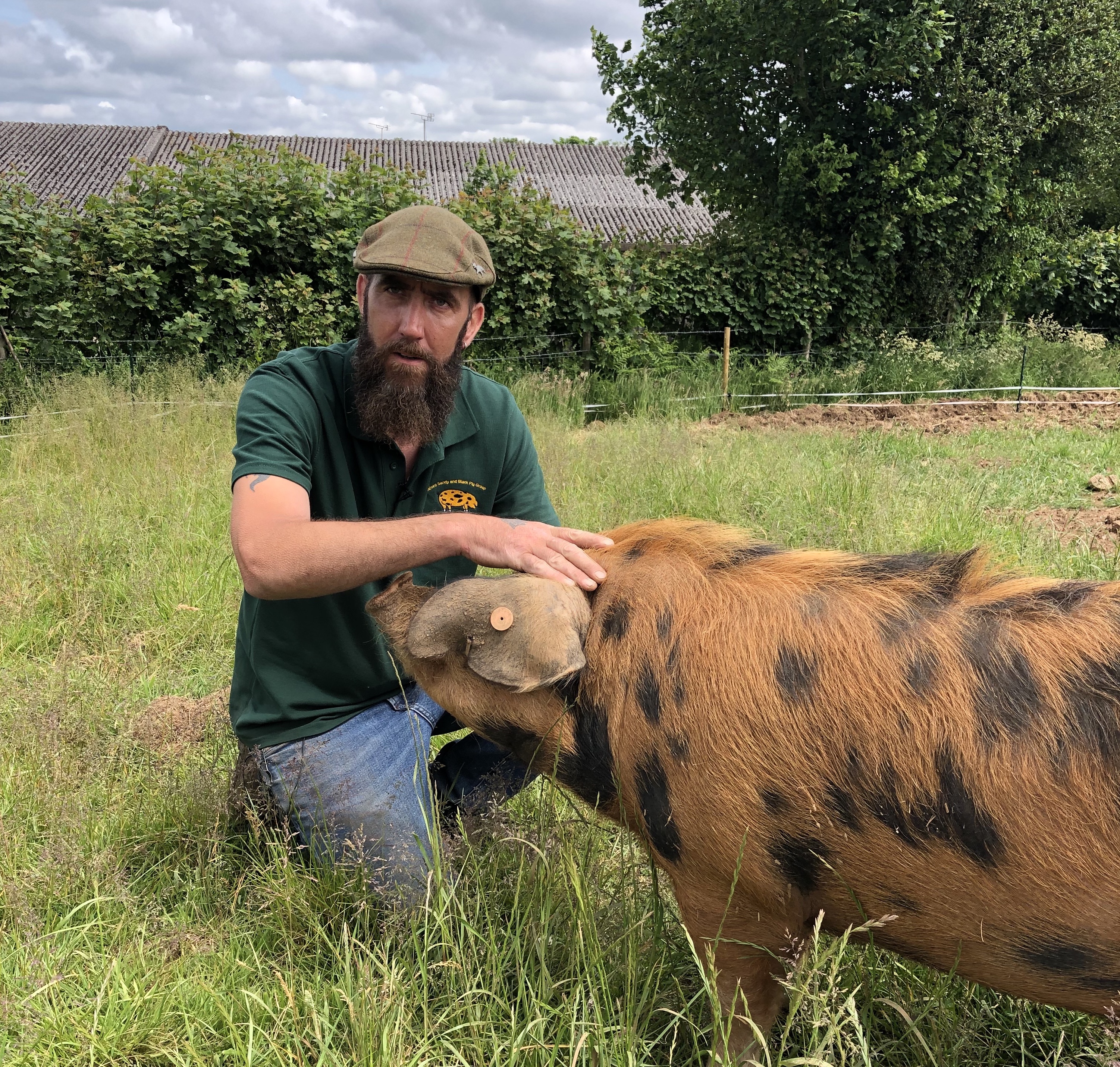

Farm Type: Pastured Pigs
Location: Cornwall
Size: 7 Acres
Soil Type: Fertile loam
Mixes Used: Special Pig-Rooting Mix, Herbal Ley & Fast & Vast
After successfully rearing pasture-fed pigs on just 0.7 acres, Justin Newman and his wife have increased the size of their Cornish small-holding to 7 acres, including some woodland.
‘The land we’re using for the pigs has increased dramatically,’ Justin explains.‘We were fortunate enough to get some woodland too, so the aim now is to keep the pigs out on the herbal ley over the summer and then establish them in the woodland area during winter. The woodland is also useful when it’s hot in the summer, providing the pigs with shade.’
Justin grew up on an arable farm with beef, dairy and lamb enterprises but after pursuing a career in the construction industry, he ‘needed a bit more than sitting in the office every day.’ Driven by a need to ‘know where the meat on my plate is coming from’, he started pig-farming six years ago. ‘I had no experience with pigs so I looked at different breeds and went for the Oxford Sandy and Blacks, which has proven to be a lovely breed to rear.’
His aim was always to ‘produce a pig that’s been reared in its natural environment, living the happiest life that it can.’
To achieve this, Justin experimented with feeding them on a rotation of clovers, mustard, herbal ley, fodder, kale and stubble turnips.
‘If you grow a diverse mix of plant species, as nature intended, it will look after itself - and keep my pigs happy. It’s like a buffet, with all the different flavours and smells. What more could a pig want?’
He includes legumes in the mixture to fix nitrogen.
‘I’m not a great believer in putting artificial fertiliser on the soil,’ says Justin. ‘To my mind, that’s like a bodybuilder feeding himself with steroids to make himself bigger.’
The land at Happy Wallow Farm is challenging, with only about six inches of topsoil over hard ground.‘Where the soil is so compacted, you want a plant like chicory, with roots to break through that platform.’ Justin has discovered that the pigs don’t particularly like chicory however, but growing it in the rotation also protects other plants as it deters the pigs from digging and rooting them up right away. The south facing land is also very dry, and Justin has found that including mustard as a nurse crop in the drought-resistant herbal ley offers quick growing shade which prevents the ground from drying and aids the slower growing species underneath.
He keeps machinery to a minimum.
‘I’ve got a chain harrow behind the quad or tractor, to pull out some of the dead grass and weed. I’ve got my rotavator which is handy on the tractor when you need to re-till the ground. There’s less environmental impact than a seed drill. We walk up and down the hill, casting the seed by hand. Obviously that won’t work on a bigger scale but it keeps our overheads down.’
The pork is sold through the Happy Wallow farm shop and it’s a seasonal market. ‘Here in Cornwall, if we get a proper summer, we sell a lot of barbecue produce. Then during the winter months it’s pork joints and chops.’
‘We get great feedback from the customers and butchers about how good our pork tastes and we get good feedback from people who buy our weaners. They say, ‘what great taste,’ and keep coming back for more, which can be a bit of a problem as we need to keep enough weaners to grow on ourselves!
‘We use Cotswold Seeds because they have so much knowledge. I have their wallchart on my kitchen wall and I like to chat about what different plants we can use and then experiment.’
Date Posted: 11th August 2025




